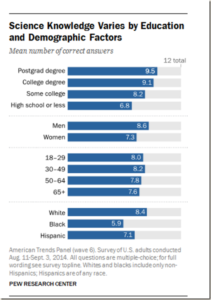Dr. James Thompson blogs:
Stuart Ritchie (as in Intelligence: All that Matters) has done a guest post on the British Psychological Society Research Digest. This has wide readership among psychologists, so that it is very good news that they will be getting an update on contemporary research by an active researcher. I hope that they will consider the inheritance of characteristics in all their research.
This is intended to be a very brief post, just directing you to Stuart’s article, and adding a few links.
https://digest.bps.org.uk/2016/09/12/its-now-possible-in-theory-to-predict-life-success-from-a-genetic-test-at-birth/
A few points to add: Stuart mentions the marvellous Dunedin study, so here is a link to those researchers, and the questions they set the ISIR conference in 2014:
https://drjamesthompson.blogspot.co.uk/2014/12/are-you-nuisance.html
Here is a post about recent work done on polygenic scores and human behaviours:
https://drjamesthompson.blogspot.co.uk/2015/11/genetic-story-jumps-ahead.html
Here is a link to the Belsky paper Stuart mentioned, from which the above graph was drawn:
https://drive.google.com/file/d/0B3c4TxciNeJZV3BBaVcxb1FpVHM/view?usp=sharing
As Stuart says, only 1 or 2% of the variance in these behaviours is explained by the polygenic score. This sound little, and is, but the miracle is that any link can be shown between gene sequences and complex human outcomes.
The next paper by Selzam boosts the variance-accounted-for to 9.1%. Stuart says: The polygenic scores are already pretty good predictors: in Selzam’s study, they have just about half of the predictive value of asking about the parentR#8217;s socio-economic status, or testing the child’s IQ at age 7 (and the scores are based on DNA variants that are unchanged since birth and can be measured with a simple saliva or blood test).
Of course, parent’s socio-economic status is not random. Higher status is achieved by brighter persons. IQ at age 7 is usually a better predictor of adult success than class of origin, though the two are confounded, and quite properly so.
Stuart adds: Using an even newer polygenic education estimate from a more recent gene-finding study (published in Nature this year), Saskia Selzam and colleagues found that their polygenic score explained a remarkable 9.1 per cent of the variance in age-16 GCSE results in a sample of 4,300 British teenagers
It is worth noticing that the most easily available and most often used educational achievement measure is very crude: years of schooling. Once proper scholastic and intellectual assessment measures are used on much larger genetic samples the power of the predictive polygenetic scores can very probably be considerably refined.
Here is the full paper: http://www.nature.com/mp/journal/vaop/ncurrent/full/mp2016107a.html
It requires detailed reading, and links to other recent studies on educational attainment.
In summary, we now have an incredible advance. We can now understand a bit more about how DNA, the ultimate cause of how we are built, contributes causally to an important aspect of our behaviour.

